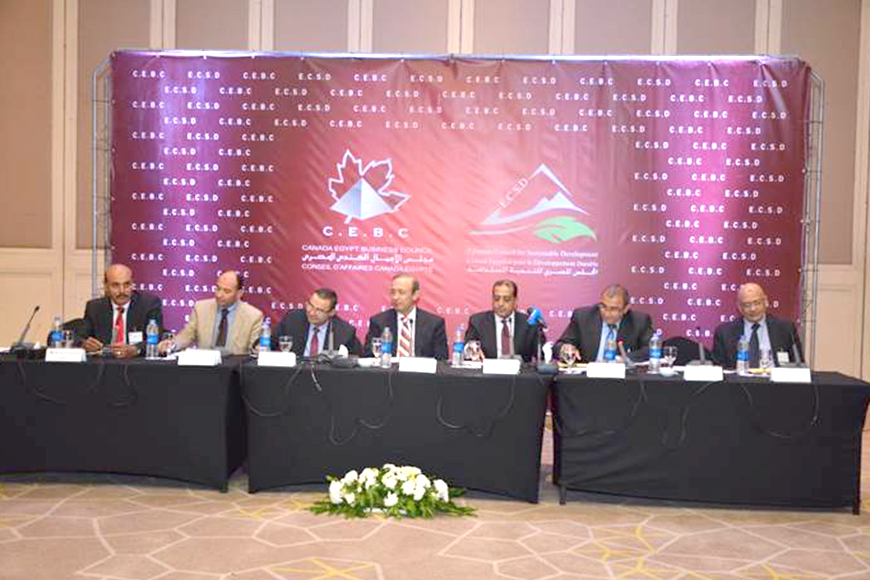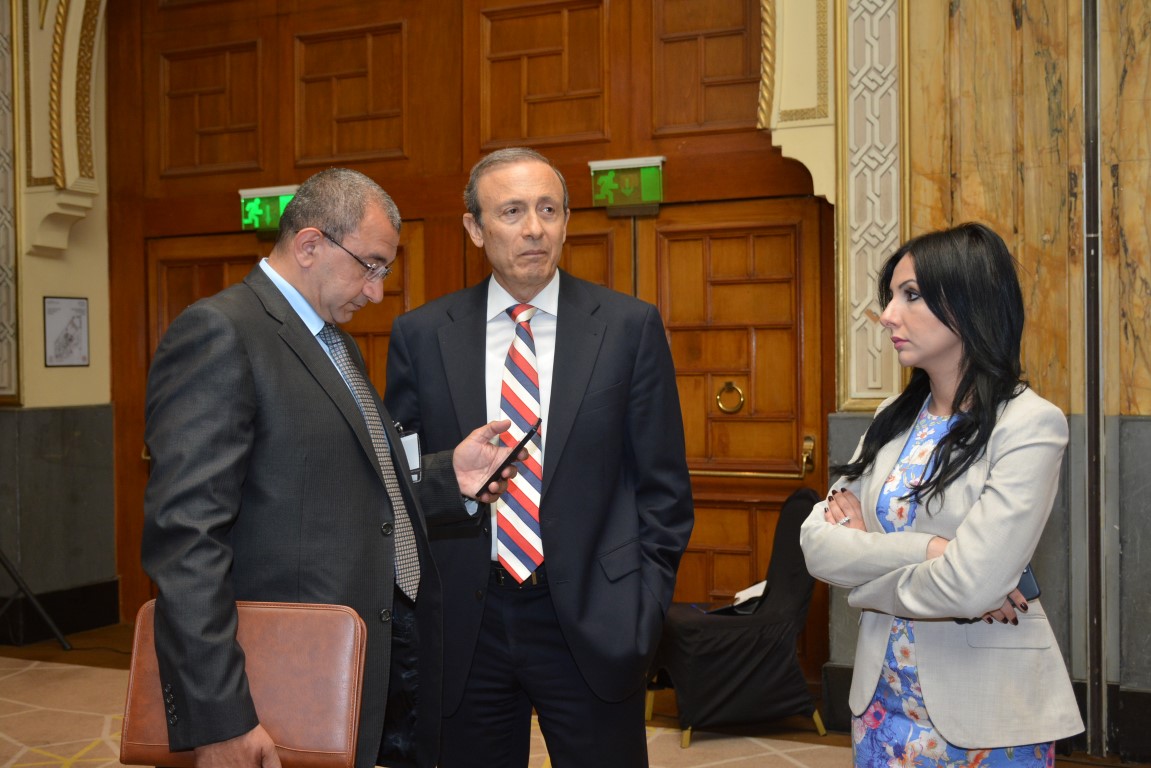
Date
Speaker(s)
Dr. Sayed Sakar
Mr. Mohamed Abdel Sattar
Mr. Motaz Raslan
Mr. Emad Samy Hussein
Mr. Khaled Abu Zahra
Mr. Mammdouh Omar
Presentation
Description
Despite the passage of about nine months on the application of the Value Added Tax (VAT), but the state of controversy has not stopped, as a result of the increase in prices of most goods and services; which in turn had a significant effect on various economic sectors. In this context, Canada Egypt Business Council and the Egyptian Council for Sustainable Development organized an event with Mr. Amr El-Monayer Deputy Minister of Finance for Tax Policies, Mr. Emad Samy Hussein Head of Egyptian Tax Authority, Dr. Ramadan Sedik Advisor to the Minister of Finance and Mr. Salah Youssef Aly Head of Research Sector for Tax Policies.
In the opening remarks, Eng. Motaz Raslan welcomed the guests and thanked the members of the Tax and Customs Committee for their contribution to the event. Then, he mentioned that on September the 9th, the VAT law was applied after a wide debate and discussions that lasted for many years with the aim of treating distortions of the sales tax law and to end the suffering of tax practices and amendments. Besides, the most important goal was to increase the state’s resources to reduce the budget deficit; that has been greatly exacerbated as a result of the political conditions and the enormous economic challenges experienced by Egypt during the past years. This contributed to the decline in revenues and increase items of expenditure.
It is known that the VAT is one of the most common consumption taxes in the world, applied in more than 150 countries and it is the main source of revenue in most countries of the world, but in Egypt after more than 9 months of the application, the controversy is still going on and the indicators are heading towards higher prices, in addition to the complaints of some economic sectors after the impact of the law.
Mr. Mohammed Abdul Sattar, deputy head of the Tax Authority, stressed that the authority is preparing to make a network link between it and the major financiers to prevent tax evasion. He explained the mechanisms of implementing the VAT. Then, he added that the Egyptian Tax Authority has bought about 1,000 computers and contracted 4,000 machines in order to use them in the networking process, which will gather all producers and importers who are obliged to pay the tax.
Mr. Abdul Sattar revealed that the weak infrastructure of the tax authority is the reason for the delay in the work of networking, pointing out that the Ministry of Finance allocated huge funding to build this system.
The head of the Egyptian Tax Authority, Mr. Emad Samy said that the aim of implementing the value added tax is to achieve great returns for the state. He pointed out that about 240 billion pounds are paid as salaries to employees, as they are the only group that regularly pays the tax, but the rest of the society are not organized in payment; such as free professions as lawyers, accountants, artists and media professionals.
Mr. Emad Samy Sami mentioned that the total revenue of the tax amounted to be about 432 billion pounds during the current fiscal year, but there are fictitious companies who fake the bills, but the ones who are caught doing such actions are being converted for trial. He continued that the goal of the VAT is to achieve 604 billion pounds during the fiscal year 2016/2017, pointing out that he will not hesitate to collect all tax arrears from lawyers, accountants and others who are eligible to pay the tax on the homeland.
He stressed that during April 2017, about 41 billion pounds were collected, and the tax arrears will be collected without default, and that he will not accept tax evasion or any abuse to tax officials because citizens are equal when it comes to applying the law.
In conclusion, in light of the difficult economic conditions suffered by the Egyptian indicators from the slowdown of the economy and the rise in world prices for most commodities, which jumped the rates inflation to more than 30%. In addition to the liberalization of the exchange rate last November, and the subsequent of the repercussions on prices; where the prices of most goods especially the imported ones had highly increased, all these circumstances contributed to increasing the budget deficit; the VAR law is applied to solve this fiscal issues and collect revenues to develop various segments of the society.
The floor was opened for questions and answers sessions, discussing special situations in applying the tax, and future plans and strategies to develop the situation.











